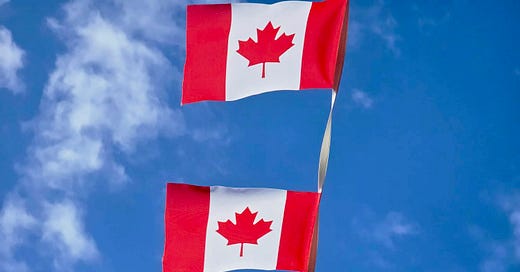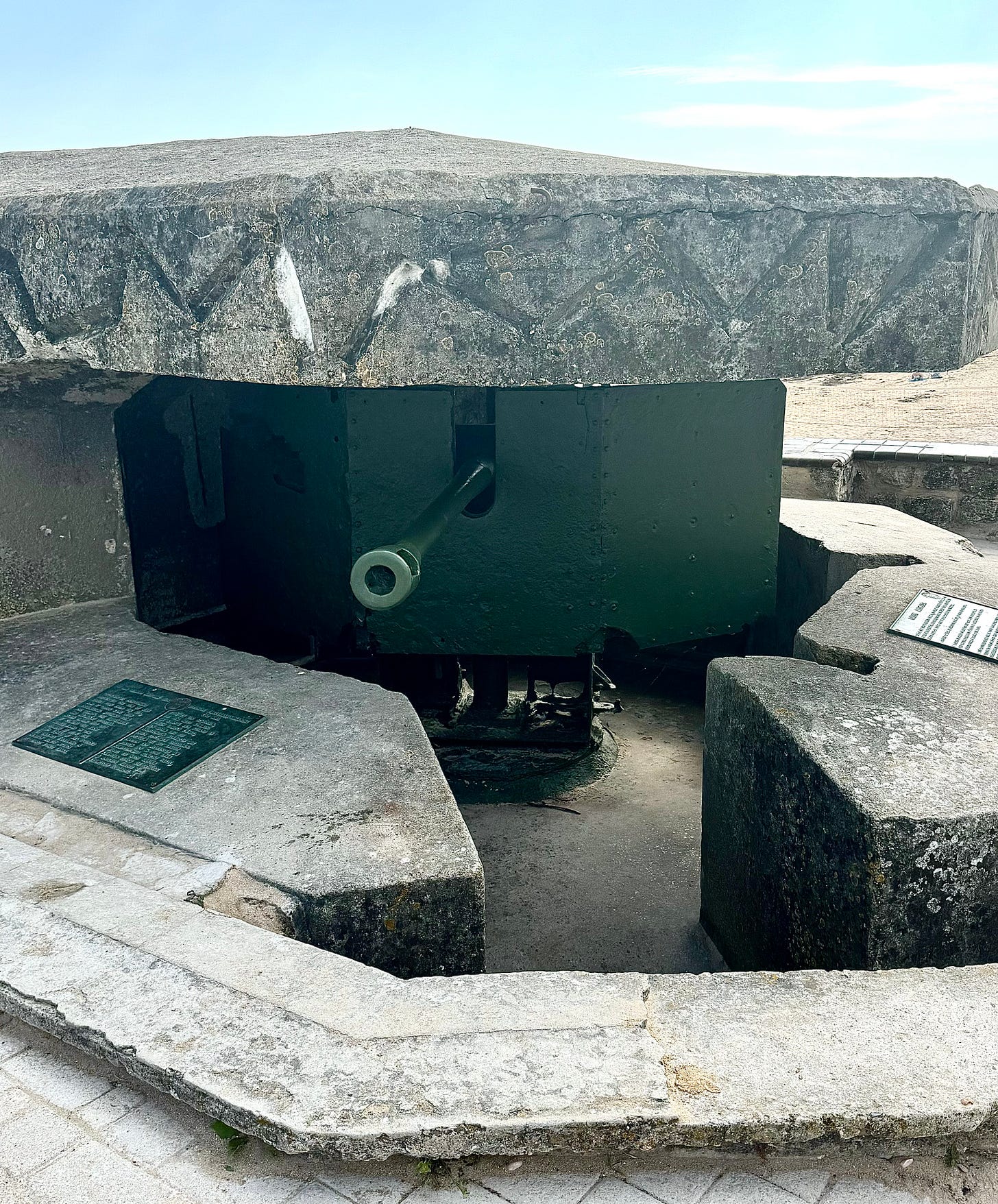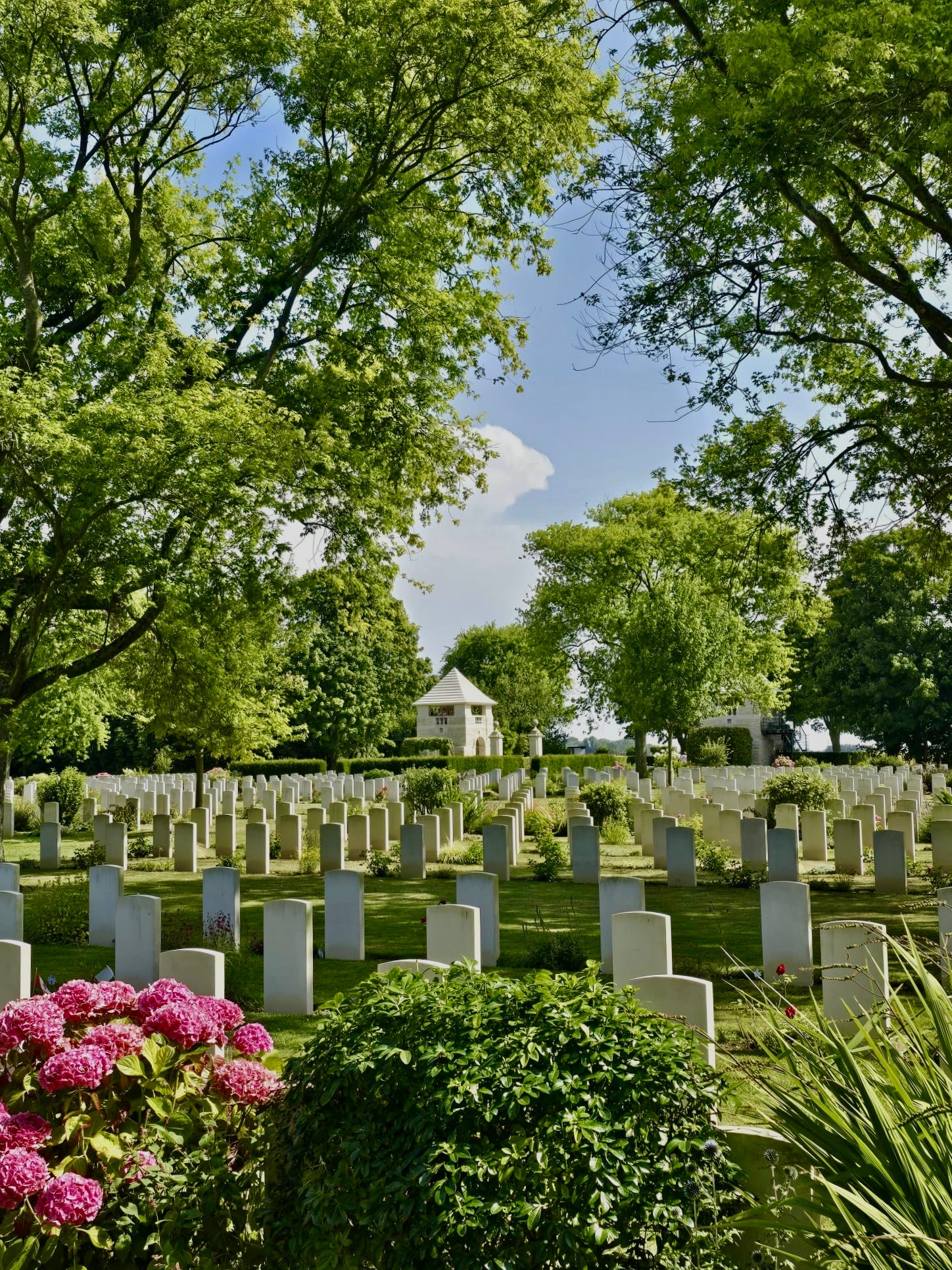Give sorrow words; the grief that does not speak knits up the o’er-wrought heart and bids it break.
—Macbeth, William Shakespeare
When our lives pass by at warp speed, we humans easily lose sight of what matters most. That’s particularly true of those moments that cast a deep pall. The negative energy spent on micro events of little real import—grievances, annoyances, inconveniences—can take on outsized importance through the rear view mirror of memory.
So when the big stuff happens, we may be at a real loss.
History lessons
I’m walking on a beach in France. The August sun is warm and tempered by the salty breeze. Nearby, children are playing at the shoreline, screaming as the cold Atlantic water nips their toes. It’s a near-idyllic scene.
Yet closer to my range of vision is an oddity.
An ugly hulking bunker breaks the illusion that this is an ordinary seaside escape. We’re at Juno Beach in Normandy, at the site where 80 years earlier the Canadian troops landed on D-Day. These were not hardened veterans of battle. An all-volunteer army, teenagers mostly, many of whom lied about their age to enlist. For most, that historic day was their first battle in their first war. For many, it would be their last.
And so began a day of remembrance to understand how young and untried soldiers gave everything to defend and protect freedom for all.
Over a nine-hour tour, our British guide, Stuart Robertson, took us on a moving journey across time and memory. In the telling, what struck us most was not just the history lessons, but rather the way that the stories of these young men and women were being kept alive, sacred, requiring us to bear witness.
And it was not only on these hallowed beaches that remembrance lives. In every small town and village, the streets were festooned with the flags of the nations who came and served. Canadian, British, American flags, waving high and proud, with messages of thanks and gratitude made even more meaningful with the passage of time.
Lest we forget
Our last stop of the day brought the point home poignantly. Nestled in the quiet embrace of Normandy's rolling fields, the Canadian War Cemetery rests under a vast, whispering sky. Here, rows of white stones stand like solemn sentinels, aligned with precision, a deep green canvas where shadows play and sunlight dapples, each blade of grass a silent witness to sacrifices made, lives lost.
Ancient trees keep watch, their branches stretching overhead like a protective canopy, as if to shield the memories held within the earth. The nearby sea murmurs in the distance, a rhythmic reminder of journeys undertaken, of shores crossed for a world defended. It is a place of peace and reverence, where the air is thick with history and the silence speaks of courage, loss, and the undying spirit of those who sleep, far from home, yet forever alive in a quiet corner of France.
In this place of forgotten dreams, sorrow and grief are held high, acknowledging what was lost, what will never be, and the incredible gift of what is.
Remembrance Day every day
As I sit here on this day and think back on those enormous sacrifices made 80 years ago, my reflections lead me to how I might better live with my present sorrow and feelings of loss. There are three things on my mind.
1. Acknowledge grief and give it words
As Shakespeare wrote, unspoken grief can fester and weigh heavily on the heart. When we face big losses or profound experiences, it’s important to give words to our sorrow, whether through conversation, writing, or quiet reflection. This act of expression is not only a release but a way to understand and validate our feelings, allowing us to process and ultimately carry our grief with greater grace.
2. Resist the pull of the trivial
The energy we spend on trivial grievances can dilute our capacity to face life’s deeper challenges. By choosing not to dwell on the minor annoyances and inconveniences, we leave room in our hearts and minds to focus on what genuinely matters. This perspective shift helps prepare us for the heavy stuff when it comes, grounding us in what’s truly meaningful.
3. Embrace remembrance as a form of healing
That visit to Juno Beach reminded me that remembrance can be a powerful tool for healing. In learning about the past and those we’ve lost, we find a way to carry their spirit with us, enriching our lives with their memory. Whether through visiting meaningful places, creating rituals of remembrance, or simply taking time to reflect, keeping who and what has come before alive can transform grief into a quiet source of strength and purpose.
Marking this 80th day of grief, we recognize that in choosing what we remember, we shape how we live today. Being present with the past carries us through life’s darkest moments.
Apple-ginger hot toddy with Calvados
When it’s cold and dreary and you’re blue about something, a warming drink is just the trick. In a homage to Normandy, and to the many who were lost there, this lovely toddy has just the right amount of Calvados—that delicious apple brandy uniquely from this small corner of France.
You can change up the ingredients to suit your taste. Star anise is a great alternative to cinammon, you can skip the cloves (or add more), and making the cayenne a more generous pinch can stifle that cold or the sniffles before they conquer you.
Ingredients
1 cup apple cider, heated
1 oz Calvados, or more to taste
Three thick slices fresh ginger, cut in slivers
A pinch of cayenne pepper, or to taste
1 cinnamon stick
1 lemon wedge, spiked with three whole cloves, or plain lemon slices
Juice of one lemon
1 teaspoon honey, more to taste
Combine all of the ingredients except the lemon slice in a large mug and top with boiling water. Let steep for at least five minutes. Scoop out the solids, and top with lemon wedge or slice. Wrap up in your favourite blanket, sit back and enjoy.









I read this days after my step-father's funeral. Powerful and helpful. I've been very focused on the To-Do list associated with these events... and not a whole lot about feeling grief. Spending time with my mom now so this was a good reminder to talk through things. Thx
We are fortunate to live our best lives because of their sacrifices. And, we are all responsible in preventing history repeating itself. ❤️ ☮️